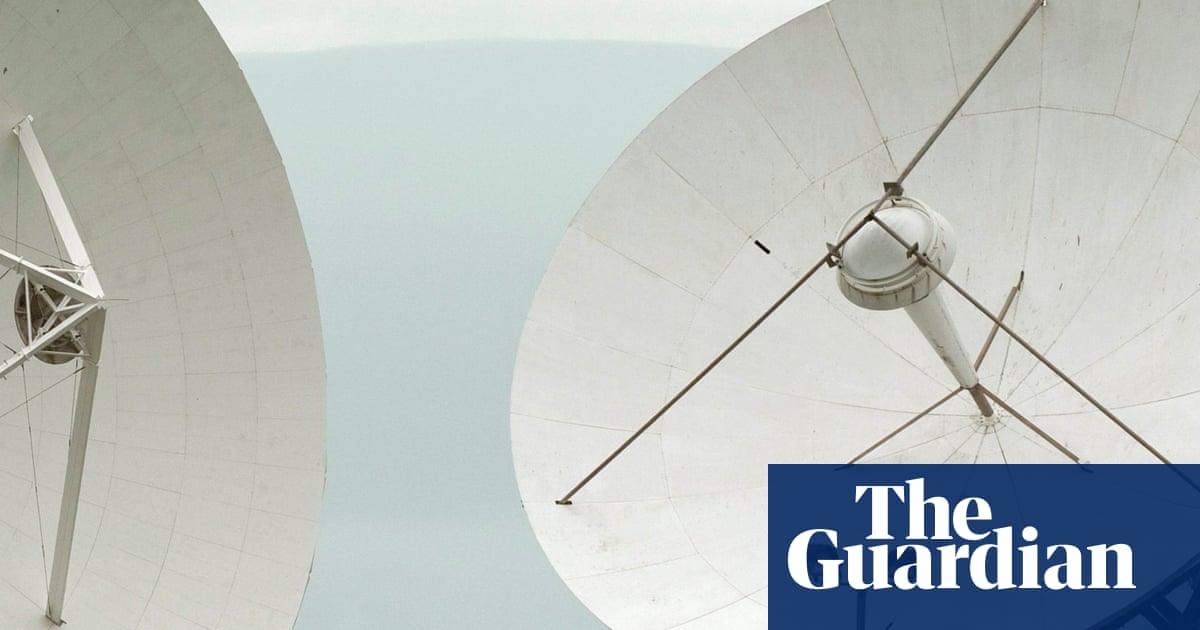Australian assistance in US airstrikes onIrancould make Australia a target for retaliation, nuclear experts say, as Australian government ministers decline to comment on the potential involvement of the secretive US-Australian surveillance base at Pine Gap in Sunday’s bombardment.
The International Coalition Against Nuclear Weapons (Ican), an Australian-founded organisation that won the 2017 Nobel peace prize, has warned Australia should not facilitate the attacks, “directly or indirectly”, and that “by assisting the US we risk becoming a target”.
Anthony Albanese wasasked repeatedly on Mondayabout Australia’s level of involvement in the strikes. “We are upfront, but we don’t talk about intelligence,” the prime minister told reporters.
“We’ve made very clear this was unilateral action taken by the United States.”
The department of defence, and the defence minister, Richard Marles, declined to comment. The foreign affairs minister, Penny Wong, said there had been no request from the US for Australia to become “more involved” in the conflict, and that she “wouldn’t speculate” on Australia’s response if such a request came.
Sign up for Guardian Australia’s breaking news email
Last October, Australia supported the American bombardment of Houthi targets in Yemen “through access and overflight for US aircraft in northern Australia”. That attack was seen as a warning to the Iranian regime, for which the Houthi insurgencyacts as a proxy.
Ican argued Australia was not a bystander to the recent US airstrikes, and that the joint US-Australian surveillance base at Pine Gap was integral to US nuclear targeting and war-fighting capabilities. Contribution to the attacks by Pine Gap could make Australia complicit and a target, Ican said.
“We call on the Australian government to immediately rule out any logistical support for these operations, including by denying permission for US B-2 stealth or B-52 bombers attacking Iran to transit or refuel in Australia,as occurred recentlyduring a US mission to attack Yemen,” Gem Romuld, director of Ican Australia, said.
“Australia must not facilitate, assist or enable these attacks – directly or indirectly. We cannot bomb a path to peace.”
Dr Margaret Beavis, Australian co-chair of Ican, said any Australian support for the US strikes would “actively undermine the global rules-based order”.
“We risk accelerating nuclear proliferation, we risk Pine Gap becoming a target, Tindal airbase [both in the Northern Territory] becoming a target.”
Senior research associate at the Nautilus Institute, Prof Richard Tanter, said it was a “realistic assessment” that the Pine Gap joint defence facility near Alice Springs might be involved in some capacity in Sunday’s bombardment of three Iranian nuclear facilities.
Pine Gap, Tanter said, is a ground station for two types of intelligence satellites in geosynchronous orbits: signals intelligence satellites, and early warning infra-red satellites, some of which are stationed over the Middle East.
Sign up toBreaking News Australia
Get the most important news as it breaks
after newsletter promotion
Data from the early warning satellites runs directly to the US through Pine Gap, without Australian intervention, Tanter said, adding that Australia was increasingly casting itself “as an enabler of American strategic projection”.
“It is very implausible to believe that Australia has any effective control over the tasking of those satellites, particularly the level of a veto [such as]: ‘We do not want you to do that’.”
Former Labor senator and union leader Doug Cameron strongly criticised the government’s support for the “illegal” strikes.
Speaking as national patron for Labor Against War, Cameron said if the government was committed to the rules-based order it would condemn the US strikes on Iranian nuclear sites, which someinternational law experts described as unlawful under the UN charter.
“We condemn the Australian government’s support for the aggression that Trump is using against Iran. We believe it is illegal, and we believe it’s inconsistent with the long-held Labor party’s support for the United Nations charters,” the former NSW senator told Guardian Australia.
Cameron said it was “inconceivable” the Labor government would support the Trump-ordered bombings had it not signed up to controversialAukus security pactthat he said “subjugated” Australian foreign policy to US interests.
The former left-faction heavyweight also criticised his own wing of the Labor party for being “mute” on the issue.
“It’s about time voices for peace once again dominated the Labor party … not this appeasement of the US and Israel,” he said.
Dr Sue Wareham, Australian national president of the Medical Association for Prevention of War (MAPW), argued Australia was “totally conflicted” in its support for the US strikes, agreeing the government was “really trying to appease the aggressors”.
MAPW, noting that the US, with more than 5,000 nuclear weapons, and Israel, with approximately 90 – were attacking Iran, which has zero, said western double standards over nuclear weapons were in “overdrive”.
Wareham said Iran’s potential development of nuclear weapons was a serious global concern, but argued that “the military [response] option rules out the diplomatic ones”.
Given Pine Gap’s critical role in US intelligence and targeting, it would be “fairly naive to think that Australia is not involved to that extent [of intelligence contribution],” Wareham said.
“As to whether we’re more involved, the government needs to be upfront about this, about all of its involvement with, and support, for theUS military… we know that some of the American B-52s are nuclear armed, we don’t know if the B-52s at Tindal are, because the US won’t tell us, and the Australian government won’t ask.”
The US has a policy of strategic ambiguityaround its B-52 fleet, a large part of which is capable of carrying a nuclear warhead, and Australia does not request that the US disclose whether it is landing nuclear-armed bombers on Australian territory.
